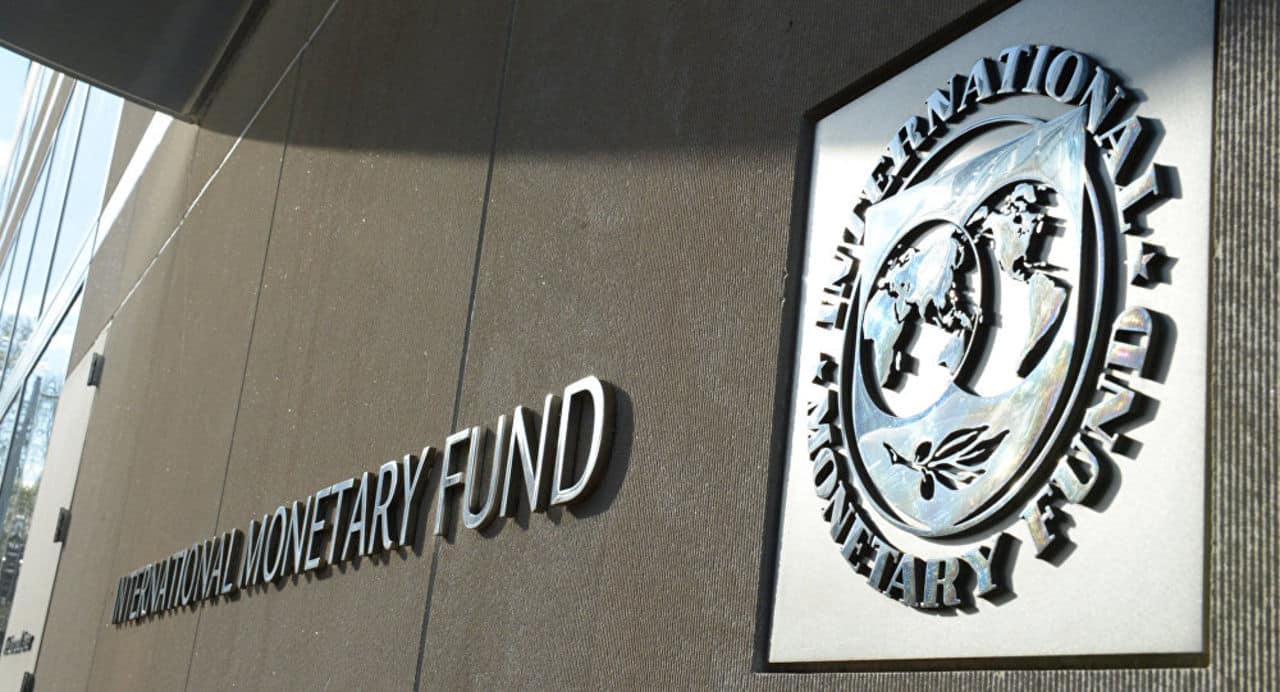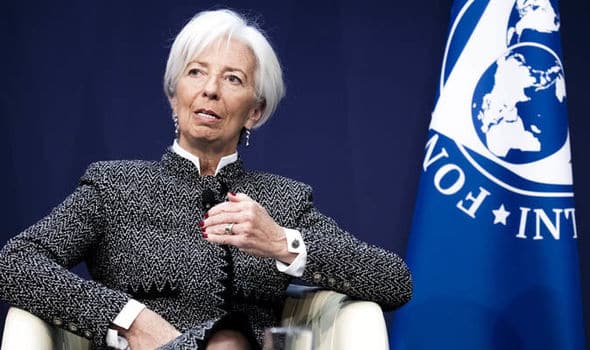IMF Releases Report on Cryptocurrencies: Highly Regards the Technology’s Benefits and Use Cases

The global financial crisis, the most recent being the 2008 crisis and the humongous bailout packages for top financial institutions and even the entire economies like Greece, definitely raised some eyebrows over central banks’ monopoly on the issuance of currency. With this in mind, the June 2018 edition of International Monetary Fund’s (IMF) paper on cryptocurrencies was unsurprisingly “pro-crypto.”
Bitcoin Poses a Stiff Challenge
The IMF regards bitcoin and other cryptocurrencies as posing a stiff challenge to the dominant role of central banks regarding global monetary policies and may “one day reduce demand for central bank money.”
Since the inception of the internet, speculations pertaining to the potential obsoletely of central banks have been whispered, and while we are not quite there yet, the IMF Chief Christine Lagarde had earlier stated that cryptocurrencies seem to be a top contender to cause “massive disruptions.”
The recent IMF report added that they might one day serve as alternative means of payment – and possibly units of account – directly resulting in low demand for fiat currencies or central bank money.

IMF Headquarters. Source: Financial Tribune
As of now, cryptocurrencies possess too much of a degree of risk and volatility to pose any threat to fiat currencies. The report did state that as adoption grows, volatility may subside “…and with better issuance rules— perhaps, “smart” rules based on artificial intelligence— their valuation could become more stable.”
Also, they have gained a notorious background with cases of fraud, security breaches, and operational failures, and hence do not enjoy a good degree of trust from the people.
Banks Asked to “Learn” from Cryptocurrencies
As noted by the report, the rise of cryptocurrencies and distributed ledger technologies like blockchain might change the paradigm of the way payments are made today. However, a switch from an account based on a value or token based system of making payments is the future of finance, and banks must explore such steps to stay competitive with the likes of bitcoin.
The IMF defined cryptocurrencies as:
“They are digital representations of value, denominated in their own units, which can be transferred peer to peer using the distributed ledger technology, Blockchain.”
However, a significant drawback that the report observed is that cryptocurrencies derive market value from their potential to be exchanged for other currencies, leading to their prices being defined highly speculatively. On the other hand, fiat currencies are valued based on the monetary policy and their status as legal tender.
Monopoly Shift
Notably, the report recognized the role of central banks in controlling an economy’s monetary policy, including setting short-term interest rates in the interbank markets for bank reserves. However, the rise of cryptocurrencies would mean that banks would no longer be able to control these short-term interest rates, hence taking a major hit in the role of dictating monetary policy.
Amongst the possibility of cryptocurrencies replacing fiat currency, the IMF noted a plethora of questions, including; would this transformation raze down the demand for central bank money? Will it impact the ability of central banks to control the monetary policy and interbank interest rates? Will central banks start devising interest rates for crypto assets as well?
Benjamin Friedman, professor of political economy at Harvard University, said:
“The interest rates that the central bank can set . . . become less closely—in the limit, not at all— connected to the interest rates and other asset prices that matter for ordinary economic transactions.”
In non-specialist terms, this means that the central bank’s monetary policy will become completely irrelevant, if the central bank money is no longer the unit of account for a majority of the economic activities, and the same utility is provided by crypto assets.
Banks Facing Competitive pressure From Digital Assets
Christine Lagarde, Managing Director of the IMF, noted in a speech at the Bank of England in 2017:
“The best response by central banks is to continue running effective monetary policy while being open to fresh ideas and new demands as economies evolve.”

The IMF’s Christine Lagarde speaks at a forum. Source: Daily Express
There’s an impending need to regulate the crypto assets to prevent regulatory arbitrage, and any other unfair advantage crypto assets might derive out of the current nascent regulation. The government authorities around the world must tighten the hold over regulation of crypto assets.
Moreover, there’s a huge scope for the benefit of monetary policymaking from technologies such as big data, artificial intelligence, and machine learning. These technological boons will better equip central banks in improving their economic forecasts.
Central Banks Face Trade-offs with Creating their own Digital Currency
To conclude, the IMF said that there is a vast scope for opportunities as well as challenges for central banks in the digital era, but it is their prime responsibility to maintain public’s confidence in fiat currencies and stay one step ahead in the game in a decentralized service economy.
The organization noted many trade-offs regarding designing a central bank digital currency “including how to avoid any additional risk of bank runs brought about by the convenience of digital cash.” The report also concluded that the “balance of benefits and risks are likely to differ from country to country, depending on circumstances such as the degree of financial and technological development.”
The full IMF report on cryptocurrencies can be accessed here.















